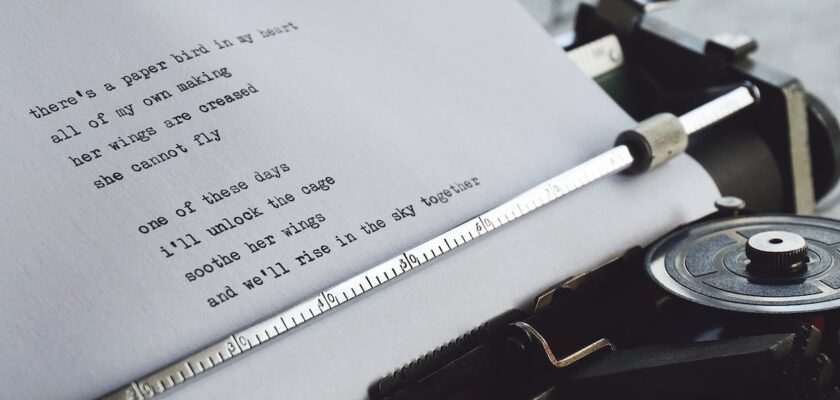Poets, writers, and other creative artists use their works to communicate about various issues in societies. Some use their literary works as a channel through which to pass knowledge to future generations. Poets use a variety of literary devices to promote their themes effectively. Such is the case in Rudyard Kipling’s poem titled “If—.” In this poem, Kipling attempts to motivate the reader to live in harmony with other members of society. He offers meaningful insights and guidelines to help the reader achieve a harmonious life. This paper presents a comprehensive analysis of the poem to prove that Kipling used anaphoric and antithesis styles, and figurative language like personification and symbolism to communicate the theme of maturity or coming of age. Kipling’s poem is written using several literary devices to motivate the reader and encourage them to lead a virtuous life.

The poem encourages several virtues and discourages vices that would otherwise be witnessed in the absence of the stated virtues. Kipling achieves this goal using anaphoric and antithesis styles of writing. An anaphora is a literary element that entails the repetitive use of a particular word at the start of multiple phrases or lines in a poem (Veremchuk, p. 132). This style is evident in all the stanzas, especially through the word “If—” which is strategically used at the beginning of multiple lines. The use of anaphora in “If—” helps to create a sense of building and emphasizes the poets’ focus on various issues. More so, the antithesis style of writing is notable in multiple lines throughout the poem. Antithesis refers to the use of words and phrases that are the direct opposite of each other or have significant contrast. For instance, line five in the first stanza states, “if you can wait and not be tired of waiting.” This style is notable in the four stanzas of the poem. The use of anaphora and antithesis helps to deliver the poem’s theme.
Figurative language can effectively transform ordinary descriptions and phrases into evocative phrases that enhance the emotional significance of a particular text. In this case, Kipling uses personification and symbolism to evoke readers’ emotions about the theme of maturity (Memon et al., p. 37). For instance, “triumph and disaster” are depicted as two impostors in the second stanza. By doing so, Kipling warns the reader that triumph and disaster can mislead people, resulting in undesired consequences. Additionally, the poet uses symbolism to emphasize the theme of maturity while dealing with different groups of people in society. The last stanza goes; “talk with crowds and keep your virtue; and walk with kings without losing the common touch” (Kipling, stanza 4). The term walk with kings symbolizes attaining a higher social status while the terms “crowds” and “common touch” symbolize ordinary people and humility in society. The use of personification and symbolism enhance Kipling’s ability to communicate the guidelines for coming of age to the reader.
The analysis presented in this paper shows that anaphoric and antithesis styles of writing, as well as the use of personification and symbolism in “If—” enhance the theme of maturity. Kipling’s choice of words and literary style in this poem indicate that he intended to encourage certain virtues that are essential to attaining maturity. Although the poem was written many decades ago, the message it relays is still relevant to readers in present-day society. The guidelines presented by Kipling regarding living a virtuous and harmonious life as helpful to present and future generations, as they were in ancient days. For this reason, anyone can read Rudyard Kipling’s “If—” and gain a lesson about life.
Works Cited
- Kipling, Rudyard. “IF-In Rewards and Fairies.” The Poetry Foundation. (n.d). https://www.poetryfoundation.org/poems/46473/if—
- Memon, M., F. Tunio, and M. Awan. “Stylistic analysis of the poem ‘if’ by Rudyard Kipling.” (2021). https://www.researchgate.net/profile/Muhammad-Ismail-Memon/publication/349215254_Stylistic_Analysis_of_the_Poem_’If’_by_Rudyard_Kipling/links/602556fba6fdcc37a81d31f2/Stylistic-Analysis-of-the-Poem-If-by-Rudyard-Kipling.pdf
- Veremchuk, Eldar. “Moral Code of a Person: Cognitive Approach to Interpretation of R. Kipling’s “If”.” Acta Neophilologica 54.1-2 (2021): 123-137. https://revije.ff.uni-lj.si/ActaNeophilologica/article/view/10145/9889
How to write a review of the poem ‘If—’
Writing good reviews of poetry can be difficult. Do you need help understanding how to prepare a review of the poem ‘If—’ correctly? There is a difference between writing a critical analysis versus writing an ordinary commentary. It is, furthermore, not easy to write an objective review and a constructive analysis of the poem.
When you do an analysis of a verse, that is, write an ‘If—’ poem review, you must first of all remember that the “like or dislike” approach is not appropriate here. Do not show your preferences to the public. Rather, your poem analysis should be an exploration of the elements of the text.
Do not invent what you think the poet thought or wanted to say. You don’t know this. Your personal feelings should not be the primary focus of a review of the poem ‘If—.’ With your review of ‘If—’ poem you should attempt to objectively analyze the literary elements of the poem and draw a conclusion.
Help with a review of ‘If’ poem
If you don’t know where to start with writing a review of the poem ‘If—’ by Rudyard Kipling, feel free to get our help. Our writers are ready to write unique review samples for anyone feeling stuck with their writing. Your paper will be completed by the deadline you set in your order form. In that form, simply include any requirements you have, and be confident that they’ll be followed by your writer.

